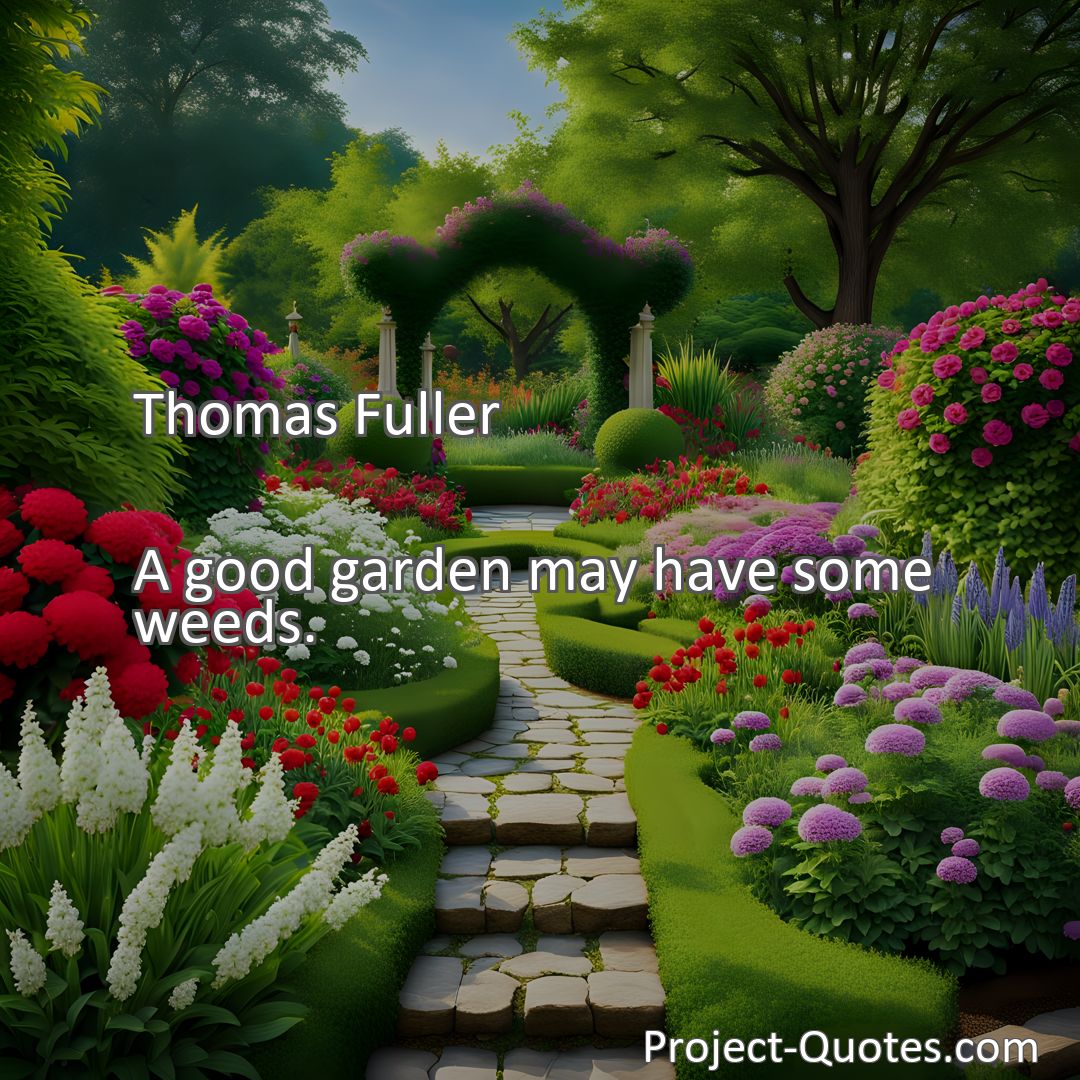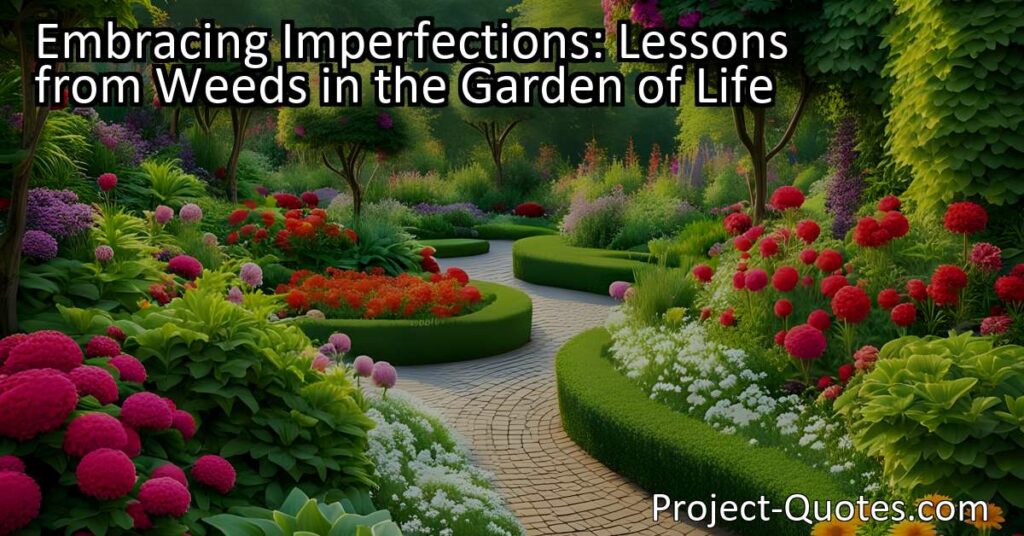A good garden may have some weeds.
Thomas Fuller
In the garden of life, a perfectly manicured space with immaculate greenery may seem beautiful, but it lacks the authenticity of real life. Just like the presence of weeds adds character and depth to a garden, embracing our flaws and imperfections allows us to learn, grow, and connect with others. By accepting ourselves as we are, weeds and all, we can cultivate true self-worth and happiness that surpasses any superficial notion of perfection.
Table of Contents
Meaning of Quote – A good garden may have some weeds.
In the words of Thomas Fuller, a renowned author, “A good garden may have some weeds.” This simple statement carries a profound message that relates not only to literal gardens but also to various aspects of our lives. At first glance, this quote may seem obscure, but upon closer examination, it reveals valuable lessons about acceptance, perseverance, and the imperfections that define our existence.
When we think of a garden, we often picture a well-manicured space adorned with colorful flowers and lush greenery. It’s an idyllic scene, carefully planned and meticulously maintained. However, even the most skilled gardener knows that weeds are an inevitable part of the process. Weeds, by definition, are unwanted plants that compete with the desired ones for nutrients, water, and sunlight. They disrupt the overall harmony of the garden and may hinder the growth of the plants we intend to cultivate.
In life, just as in a garden, we encounter obstacles and challenges that can be compared to weeds. These can manifest in various forms – setbacks, disappointments, or even the negative influences of people around us. However, it is important to recognize that these challenges, although undesirable, are an integral part of our journey. Like the weeds in a garden, they often arise unexpectedly and test our resilience and determination.
Moreover, the presence of weeds in a garden can teach us the importance of acceptance. Weeds are not inherently “bad”; they simply deviate from our intended vision. In the same way, the obstacles we face in life are not inherently negative; they are what make our journey unique. By accepting that setbacks and challenges are an inherent part of growth and success, we free ourselves from the burden of unrealistic expectations. A good garden is not defined solely by the absence of weeds, but by the ability of the gardener to adapt and work with the circumstances presented.
Furthermore, this quote encourages us to persevere in the face of adversity. A skilled gardener does not give up upon finding a few weeds; instead, they understand the importance of patience and hard work. They diligently pull out the weeds, nourish the soil, and continue nurturing the garden with a sense of optimism. Similarly, when faced with challenges in life, we must adopt a similar mindset. Rather than allowing setbacks to deter us from our goals, we should strive to overcome them with determination and resilience. Through our perseverance, we not only eliminate the weeds but also cultivate a sense of personal growth and accomplishment.
In the garden of life, the weeds can be viewed as valuable lessons that help us appreciate the beauty of our journey. Mistakes, failures, and hardships provide us with opportunities for growth and self-reflection. They inspire us to reevaluate our goals, make necessary adjustments, and develop new strategies for success. Just as a gardener learns from experience, we too can learn from our setbacks and position ourselves for greater achievements.
Moreover, the quote by Thomas Fuller reminds us of the inherent imperfections that exist in everything around us, including ourselves. A garden that only consists of perfectly arranged flowers and immaculate greenery may appear beautiful, but it lacks the essence of real life. The presence of weeds adds character and authenticity to the garden, reminding us that perfection is an illusion. Similarly, in our own lives, we should embrace our flaws and imperfections. It is through our imperfections that we learn, grow, and connect with others on a deeper level. By accepting ourselves as we are, weeds and all, we can cultivate a sense of self-worth and happiness that surpasses any superficial notion of perfection.
In conclusion, the quote by Thomas Fuller, “A good garden may have some weeds” opens up a world of reflection on the complexities of life. It teaches us the significance of accepting the challenges we encounter, persevering in the face of adversity, and embracing the imperfections that define our existence. Just as a garden thrives when the gardener adapts to the presence of weeds, so too can we flourish when we approach life with an open mind and a resilient spirit. So, let us be like the skilled gardener, tending to the garden of our lives, and accepting that even in the most well-cultivated space, a few weeds may spring up along the way.
I hope this quote inspired image brings you hope and peace. Share it with someone who needs it today!


